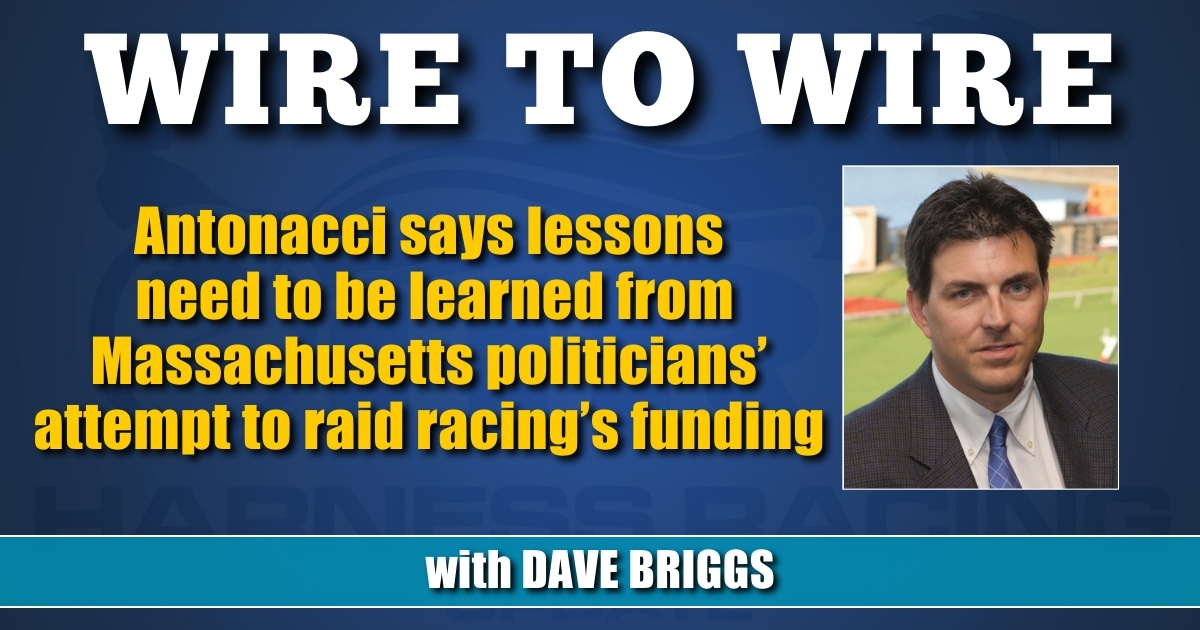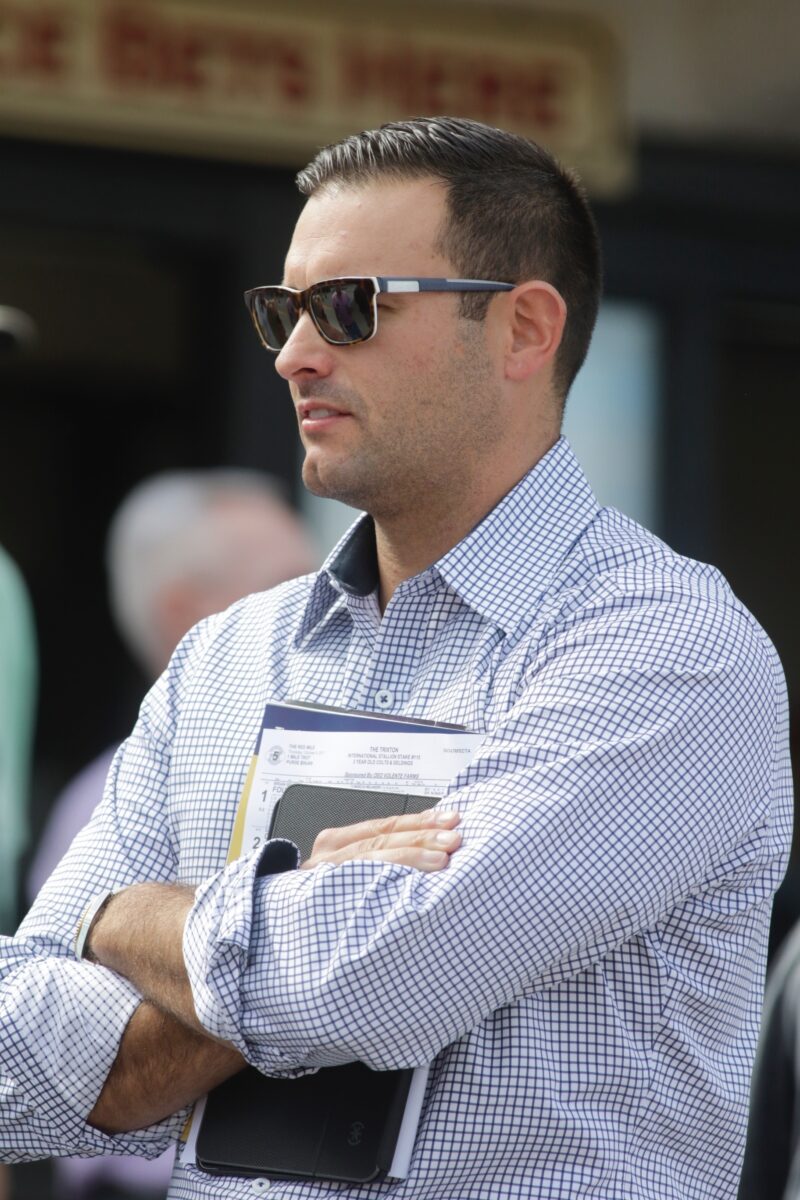Antonacci says lessons need to be learned from Massachusetts politicians’ attempt to raid racing’s funding
by Dave Briggs
Frank M. Antonacci said there is an important lesson people in all horse racing jurisdictions can learn from the recent failed attempt by Massachusetts politicians to severely decrease money that goes into the state’s Race Horse Development Fund.
“I hear people talk about marketing of the sport,” said Antonacci, a member of the esteemed family behind Lindy Farms and the board member of the Harness Horseman’s Association of New England that also acts as the group’s government affairs liaison. “And I think what gets lost is, ‘Who are we marketing to?’ I think part of that has to be a really concerted effort to make sure that we are really speaking to some of the politicians and that they understand… what these tax dollars or incentives are going to support, because we do have a very, very compelling case.
“I’ve seen government dollars spent on much less effective programs than what I see in the racing and breeding industry in Massachusetts. I think we need to think about, ‘How do we really speak to those people?’ And, really, just always be in the back of their mind that this is a good use of funding.”
Antonacci said recently the horse racing industry in the state nearly had between 50 and 90 per cent of its funding cut.
“The governor’s office came out with a budget that slashed the Race Horse Development Fund portion of the funding for racing by like 50 per cent,” Antonacci said. “The Senate version came next and it cut it by almost 90 per cent. Then it went into a conference committee and, really, the House of Representatives — mainly, the speaker in the house, the majority leader — did a heck of a job to make sure that they preserve racing.
“The house in Massachusetts really was the biggest proponent of the gaming legislation originally. It really understood the vital nature of the industry and racing in a state at the onset of expanded gaming, and really have been the stewards of the whole industry since then. They did a great job again this year of kind of beating all that back and put that nonsense out of the budget and it stayed in full force. So, it definitely was a win.”
The Race Horse Development Fund — which comes from a cut of the tax revenue coming from class one and class two casinos in Massachusetts — is critical to both purses and breed development programs in the state.
“When I went to Boston College and used to race [in Massachusetts], the open would go for $3,500 or $3,000 or $4,000,” Antonacci said. “The purse structure was between $1,500 and $4,000. It was really, really challenging times for anybody that was racing there. Everybody was just kind of hanging on by a string.
“To see it go from that to a really robust overnight racing program for 100 plus days a year with a very viable purse structure — which hopefully will continue to grow and I believe is competitive — now you really are able to make a living and make investment in the state.
“Then, the breeding industry has really flourished. And I think this last year there was more growth in mares — I think 155 or so broodmares in the state. So, that’s grown every year. The breeding program and the Massachusetts Sire Stakes are now very competitive.”
Massachusetts offers a dual-eligibility program based on mare residency, not where stallions stand. The program has proven popular in the industry with dual-eligibility yearlings commanding a premium.
“Massachusetts fancies itself as a biotech, academic hub, which are all wonderful things,” Antonacci said. “But, the blue collar agrarian jobs that come with our industry are equally, if not more, important, if you want to preserve open space and what I call the New England charm of rural Massachusetts.
“That’s kind of the story that I like to tell is that this is a way for those farms and those folks to make a good living and be able to do so and stay in the Commonwealth. So I think that’s played well.
“It’s actually been pretty neat to see the vet school at UMass is now involved with the breeding program. So that’s great. That kind of state involvement for their vet school at UMass is kind of a unique wrinkle. And Tufts vet school, as well. They’re involved in the program and, obviously, get customers through the breeding program.”
As for the latest attempt to raid funding for horse racing, Antonacci said it’s a story others need to heed and learn from — including in Massachusetts.
“I think it was a little bit of a surprise that [the attempt to raid the Fund came] through the budget process,” he said. “There wasn’t a piece of legislation.
“I think, historically, the Senate has been a little bit challenging to deal with. I want to give them the benefit of doubt that they don’t really understand the industry as well as the House members. And I think it’s kind of incumbent on us to really try to change that over the next year and coming years to really reach out more proactively to Senate members to let them understand really what a success story racing and breeding in Massachusetts has been.”


















